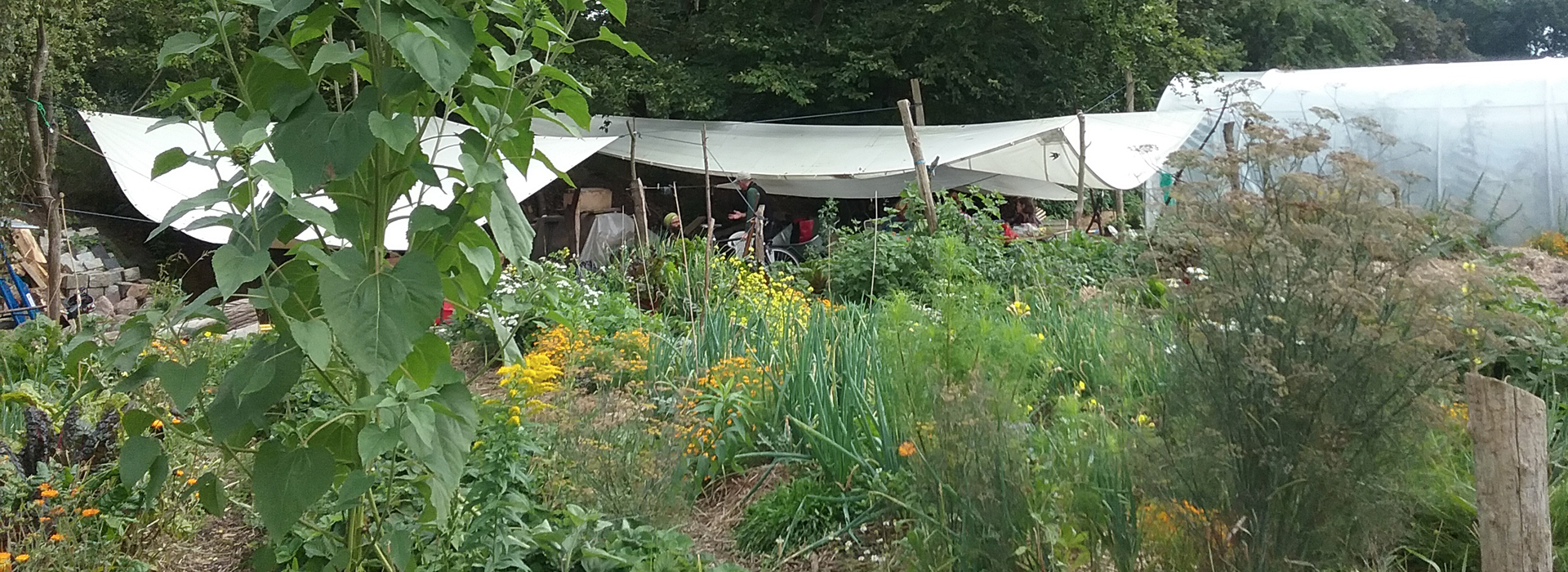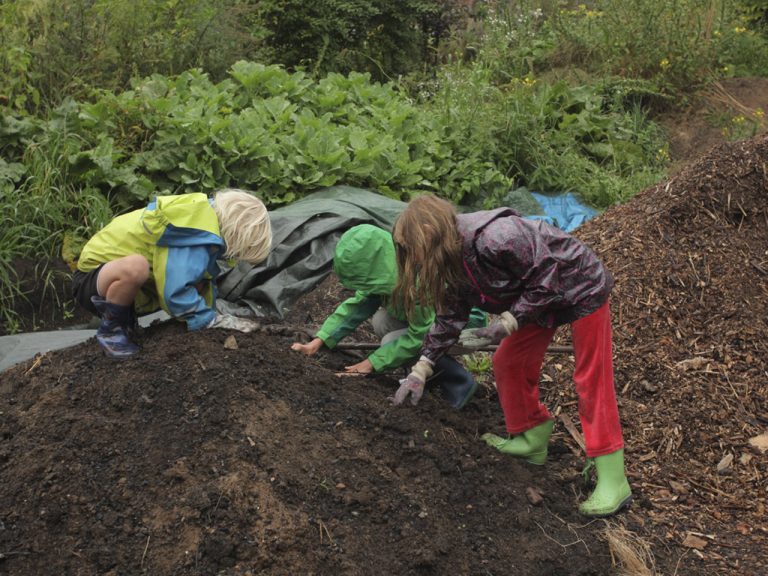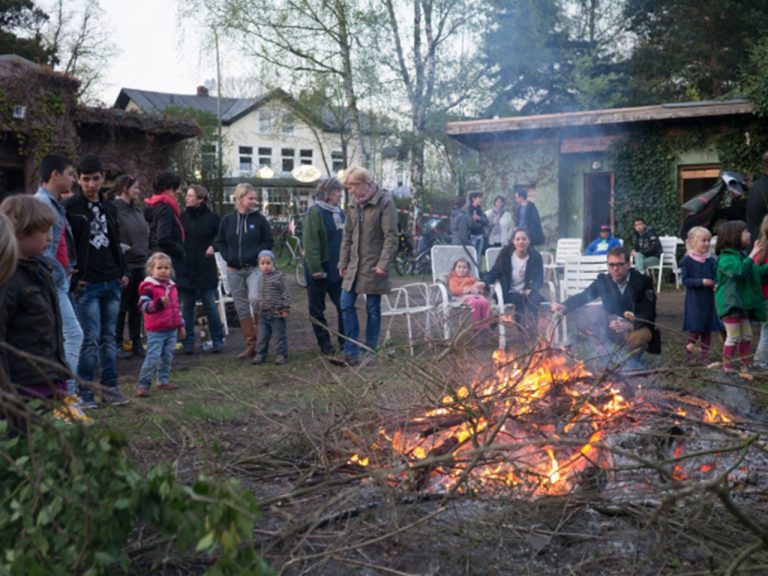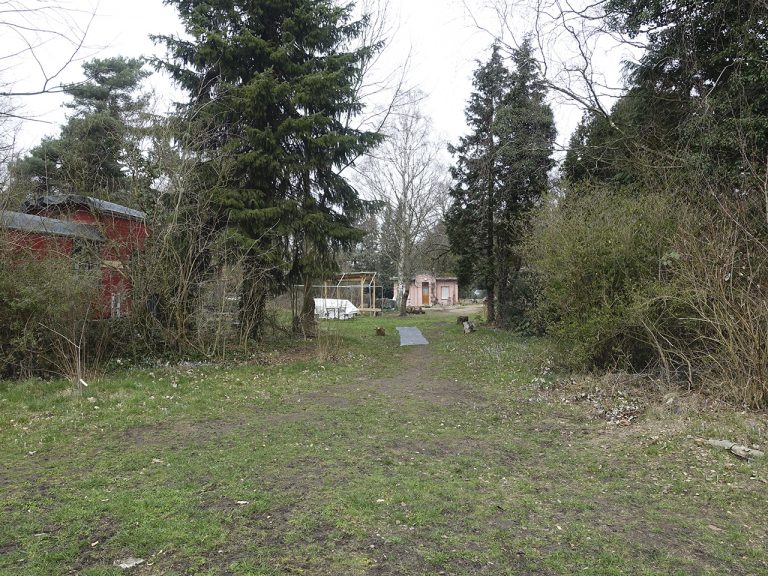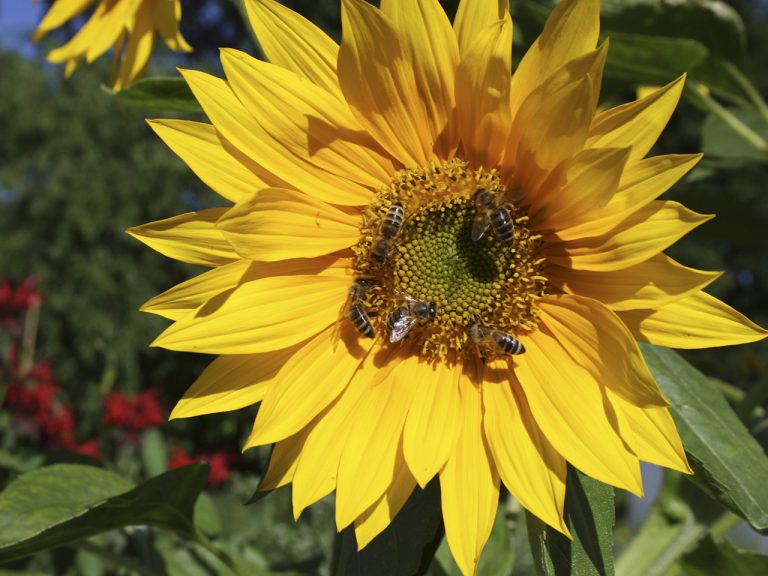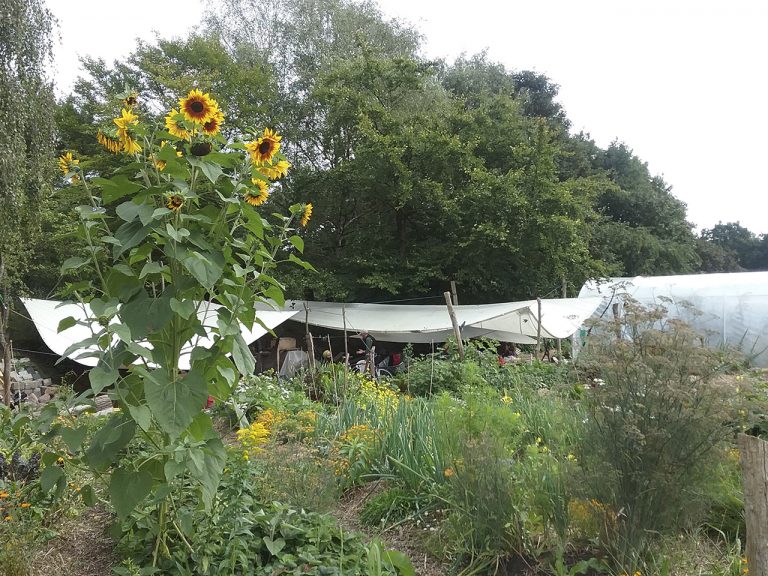Regular open garden day with changing activities like community cooking, spiritual activities or activities for the garden.
“We have decided to rename the activity from Activity Day to Open Garden Day. They have to decide if they want to get something going in the garden or if they want to bring as many people as possible together during the day. It is important that there are people in charge during the day. For example, when new visitors or interested people come - the person in charge becomes responsible over the course of time.”
Board member
Description of the activity
Beside spontaneous and individual festivals organised in the garden during the year, a monthly regular action day was introduced. Originally called “activity day”, it is now known as monthly “day of open garden.” Every first Saturday of the month (mainly from March to November) everyone who is interested can come, get a tour and have a look at the activities of the garden.
In most cases, this day is connected with special, changing activities. Examples of these activities are: joint cooking, social events/festivals, spiritual offers, church masses and children’s activities (e.g., birthday celebrations). This day is oftentimes connected with required garden tasks such as the building of a growing bed or the construction of a shelter or other facilities, where every guest or garden user is invited to help. Depending on the season, weather or activity there are about 10-40 visitors during the different times of the day. For each monthly event, at least one garden board member is responsible for the organisation and the running of the event. A premise for the selection of a topic for the event is that there is a multicultural aspect of the day. People of all origins or beliefs should been encouraged to attend in order to get to know each other. The refugees who live in the garden are involved and help with the preparations if possible. There is no absolute need for a special activity for that day. If no topic was found, the garden will still be open to visitors and the community.

 English
English  Deutsch
Deutsch  Español
Español  Svenska
Svenska 